National Security Chief Says Iran Not Relying On East Or West
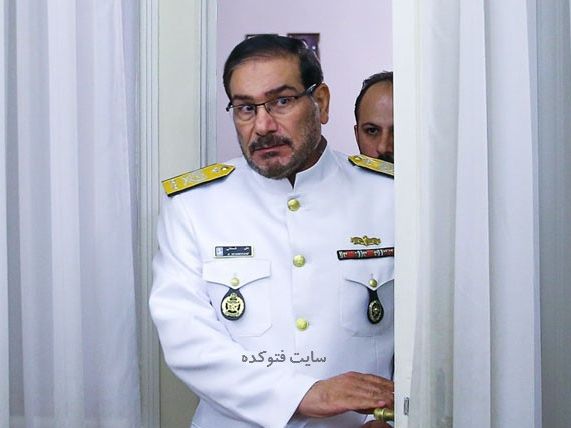
Iran’s national security chief says the Tehran protects its interests both on the battlefield as well as in diplomatic arenas, not relying on East or West.

Iran’s national security chief says the Tehran protects its interests both on the battlefield as well as in diplomatic arenas, not relying on East or West.
The secretary of Iran's Supreme National Security Council (SNSC), Ali Shamkhani, said in a tweet on Sunday evening that “The battlefield and Diplomacy -- as two components of Iran's power -- are used proportionally and judiciously to protect our security and national interests”.
“Forty years of experience has taught our people that relying on Western or Eastern powers will neither guarantee our rights nor our security”, he added.
Shamkhani made the remarks amid a major escalation of tensions in the Middle East Iran launched a dozen ballistic missiles at Erbil on Sunday and Russia has thrown a wrench in the Vienna talks to revive the 2015 nuclear deal between Iran and world powers.
Some media and politicians in Iran continue criticizing Russia for “obstructing” the nuclear talks in Vienna while hardline newspapers defend Russia's aggression against Ukraine and tend to minimize the impact of Moscow's demand for exemption from Ukraine sanctions on Iran's nuclear deal with the West.
The missiles landed near the US consulate's new building and the neighboring residential area in Iraq's northern Kurdish regional capital of Erbil but caused only material damage and one civilian was injured.
In a statement on Sunday, Iran’s Revolutionary Guards took responsibility for the missile attacks, saying Israeli "strategic centers" were the target of the attack.
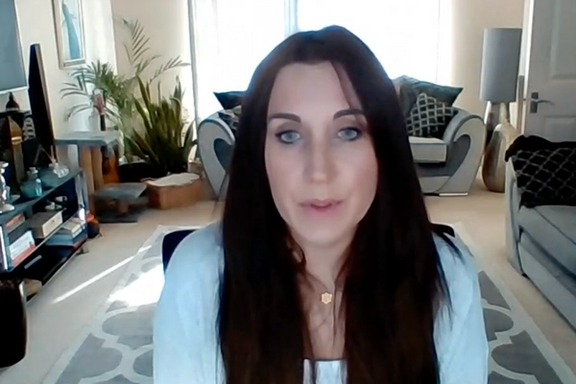
Catherine Shakdam, who was recently accused by some in Iran of infiltrating the office of Supreme Leader as an Israeli agent has denied all such allegations.
In a nearly hour-long interview with Iran International television, the French-British journalist said she had "no direct line" to Supreme Leader Ali Khamenei's office or any relationship, "professional or otherwise", with any of its officials.
She also told Iran International that she wished she had not written the article in The Times of Israel, which fueled allegations of infiltration against her.
The revelation of her article led to a scandal in Iran, with some military, political and religious figures being accused of having ties to “an infiltrator”. There were even accusations that government officials slept with Shakdam and leaked sensitive information.
Khamenei's website, to which Shakdam contributed 18 articles between 2015 and 2017, has denied any relations with her and has deleted her contributions. Shakdam told Iran International that an editor from Khamenei's office contacted her by phone to ask her to contribute articles and analyses but insisted that contact with the said person and others was made only through emails thereafter.
However, on January 16 2020, soon after Iran fired missiles at Ain al-Assad air base in Iraq hosting US forces, in retaliation for the killing of IRGC Qods Force Commander Qasem Soleimani in Baghdad, Shakdam published an article in Citizen Truth about the attack in which she claimed she had been given exclusive early access to an official statement issued by Khamenei's office. She said that according to her exclusive information over a hundred US soldiers had been killed in the attack.

When asked by Iran International who provided her with the document, she said that the individual was from "within Khamenei's office" and had volunteered the information because they wanted it to be published, but she refused to identity her source for safety reasons.
Asked why her articles were removed from Khamenei.ir website, she said as an antisemitic regime that advocates annihilation of Jews, Iranians did not want the writing of a Jew on the Supreme Leader's website.
"It was an embarrassment for them," she said adding that she did not not know if they were aware of her Jewish ancestry when she wrote for Iranian media. "When I reclaimed my history, they had an issue with me … Of course, it's anti-Semitism … I'm just shocked at the level of hatred for someone based on their ethnicity."
But some hardliner Iranian media, such as the flagship Kayhan newspaper, have defended her and said she was no spy. "Maybe they're interested in the truth, maybe they're not interested in misinformation and peddling lies," Shakdam said about Kayhan defending her.
Shakdam wrote numerous articles and gave many interviews to Iranian state media over the years in which she defended the Islamic Republic's official propaganda, and now insists she was not lying at the time.
"In my mind Iran was being mis-portrayed in the media and I felt the need to set the record straight. Now I do believe that I was being used by the regime and they used my naivety and probably lack of understanding geopolitics at the time, to their own end, but it doesn't mean that I was lying.” She claimed she fell for such propaganda because she did not agree with policies of Saudi Arabia, not just in Yemen but in the region, and felt that Iran needed to be defended.
"Because I have been to Iran and met with Iranians and seen it for myself what the regime has done to Iran and how it functions in opposition to the values that it claims to protect … I realize that there was a dichotomy, a great hypocrisy, so I decided to distance myself from the regime," she said.
Shakdam said she could not stand by a regime that called out "for genocide of an entire people on the basis of their religion and ethnicity", not just Israel but all Jews, and destabilized other countries. "It's not a criticism against the Iranian people, it's criticism against a political system."
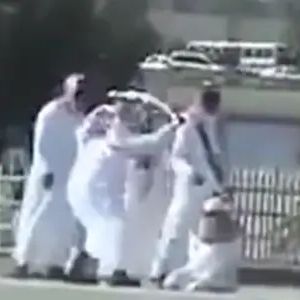
Iran Sunday condemned Saudi Arabia's execution of 81men the previous day as a "violation of basic human rights principles and international law."
"This inhumane act was in violation of basic principles of human rights and international law, and contrary to human principles and accepted legal procedures," a ministry spokesperson said, according to state media.
Reports say that 41 of the victims were Shiite opponents of the government.
Iran itself has the highest number of executions in the world after China. In January alone it hanged 46 people. A number of high-profile political prisoners have also died in custody under suspicious circumstances.
Iran’s Shiite regime is a staunch enemy of Sunni Saudi Arabia and the two rivals have been engaged in bitter conflicts in the Middle East, including a seven-year war in Yemen.
On Sunday, Tehran also announced an end to talks with Riyadh, which started one year ago with Iraqi mediation to help solve their differences.
Saudi Arabia denies accusations of human rights abuses and says it protects its national security through its laws.
Its state news agency, SPA, said on Saturday the men executed on Saturday had the right to an attorney and were guaranteed their full rights under Saudi law during the judicial process.
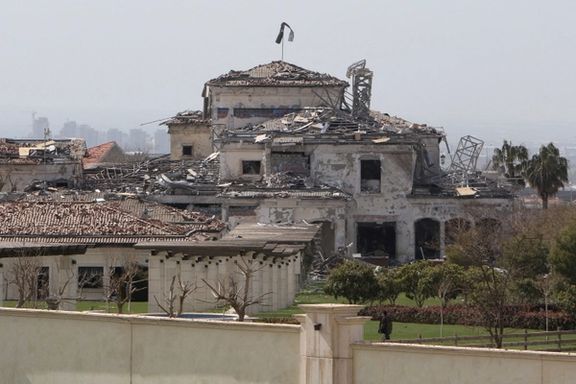
Iraq's foreign ministry summoned the Iranian ambassador Sunday to protest against a ballistic missile attack on the city of Erbil, state news agency INA said.
Iran's Revolutionary Guards claimed responsibility for a dozen ballistic missiles that struck Erbil in the Kurdish autonomous region in the early hours of Sunday, Iranian state media reported.
Iraqi Prime Minister Mustafa al-Kadhimi condemned the attack earlier that apparently targeted the US Consulate's new building in Erbil.
In a tweet a few hours after the attack, al-Kadhimi said, “The aggression which targeted the dear city of Erbil and spread fear amongst its inhabitants is an attack on the security of our people”.
He added that he discussed these developments with Kurdistan Region Prime Minister Masrour Barzani, noting that “Our security forces will investigate and stand firm against any threats towards our people”.
Iraq’s top Shiite politician and cleric Muqtada al-Sadr also condemned the attack and urged the government to let Iran know it cannot violate Iraq’s security.
Iran claimed it targeted a secret Israeli spy center in Erbil to avenge the death of two of its IRGC officers in Syria a week ago. But Israeli attacks on Iranian targets in Syria are frequent incidents and Tehran usually remains silent about its casualties.
With reporting by Reuters

Senior US officials Sunday appeared to suggest that Iran’s missile attack on Erbil would not impact the chances of concluding a nuclear agreement with Tehran.
US National Security Adviser Jake Sullivan said Sunday no US citizens were harmed, and no US facilities were hit in the Iranian ballistic missile attack on Erbil.
Sullivan condemned the attack by Iran’s Revolutionary Guard on Sunday, saying Washington would do whatever it takes to defend its people, interests and allies.
A statement by the State Department appeared to dispel the notion that Iran's attack had anything to do with the US.
"The United States strongly condemns the missile strikes on Erbil, Iraq last night that emanated from Iran. The strikes were an outrageous violation of Iraq’s sovereignty. No U.S. facilities were damaged or personnel injured, and we have no indications the attack was directed at the United States," the State Department said.
Iran’s missile attack came as diplomats have stopped nuclear talks in Vienna after 11 months of negotiations even though they say an agreement was very close to be finalized. The pause came after Russia on March 5 demanded an exemption from Ukraine sanctions in its economic and other relations with Iran. Tehran has not objected to Russia’s sudden move, which is bound to delay an agreement and lifting of Iran’s economic sanctions, vital for the government.
Deputy Secretary of State Wendy Sherman told Fox News on Sunday that “this was a very concerning attack” but "we do not believe the US consulate was actually the target of this missile attack."
She tacitly signaled that the attacks won’t have any effect on US readiness to conclude a nuclear deal with Iran, saying, Washington is concerned about the attacks but “imagine these Iranians with a nuclear weapon. We need to get that off the table so we can address their malign behavior in the Middle East… But first we’ve got to get this deal”.
“President Biden believes very strongly, as does secretary Blinken, as do I, that we need to get sure that Iran never obtains a nuclear weapon, and then we also need to deal with their malign behaver in the region, but first we’ve got to make sure that they cannot a nuclear weapon”.
The Biden administration has dismissed Moscow’s demand for exemptions from Ukraine sanctions, but some media outlets and politicians in Iran have been arguing that Russia has taken Iran’s nuclear deal hostage. They have accused their government of being subservient to Moscow to the extent of relinquishing the vital national interest in achieving an agreement with the West.
Critics of the Biden policy argue that once a nuclear deal is reached and Iran receives tens of billions of dollars in sanctions relief, it would have little incentive to negotiate over other issues, including its ballistic missile program and its aggressive regional policies.
The US ambassador to Iraq, Matthew Tueller, said the US condemns the “criminal attack on civilian targets in Irbil”, noting that "Iranian regime elements have claimed responsibility for this attack and must be held accountable for this flagrant violation of Iraqi sovereignty”.
The remark about “Iran regime elements” also minimizes the gravity of Iran’s act.
The IRGC that has accepted responsibility of the missile attack is not an element in a loose structure. It is Iran’s main military force, and its officers also occupy the top positions in the regular army. The commander in chief of both the IRGC and the army is Supreme Leader Ali Khamenei and any decision to launch a missile strike cannot be taken without his approval.
Some US lawmakers and former officials reacted differently to Iran’s action. Several people urged Biden to stop the nuclear talks, and not sign an agreement partly engineered by Russia.
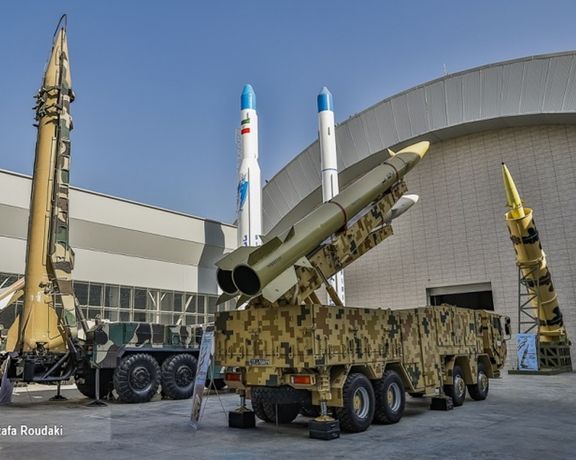
Iraqi Prime Minister Mustafa al-Kadhimi has condemned the ballistic missile attack claimed by Iran targeting the US Consulate's new building in Erbil.
In a tweet a few hours after the attack, al-Kadhimi said, “The aggression which targeted the dear city of Erbil and spread fear amongst its inhabitants is an attack on the security of our people”.
He added that he discussed these developments with Kurdistan Region Prime Minister Masrour Barzani, noting that “Our security forces will investigate and stand firm against any threats towards our people”.
Calling on people to keep calm, Barzani said, “Erbil will stand strong against the cowardly attacks”.
Influential Iraqi Shiite cleric Muqtada al-Sadr also denounced the attack, saying, "Erbil is in the crosshairs and fire of the coward and losers”.
Slamming the attack, leftist Iraqi-Kurdish political party the Patriotic Union of Kurdistan (PUK) said such an attack “is a clear indicator of attempts to ruin stability in the Kurdistan Region.”
The United Nations Assistance Mission for Iraq (UNAMI) also strongly condemned the “heinous missile attack”, saying, “Perpetrators of this cowardly attack must be held to account”.
“Iraqis are called upon to stand together in the face of any act that violates Iraq’s sovereignty/territorial integrity, and/or aims to undermine stability/unity”, it said.
Several hours after a dozen ballistic missiles struck Erbil, Iran's Revolutionary Guards took responsibility for it, saying they targeted Israeli "strategic centers”.